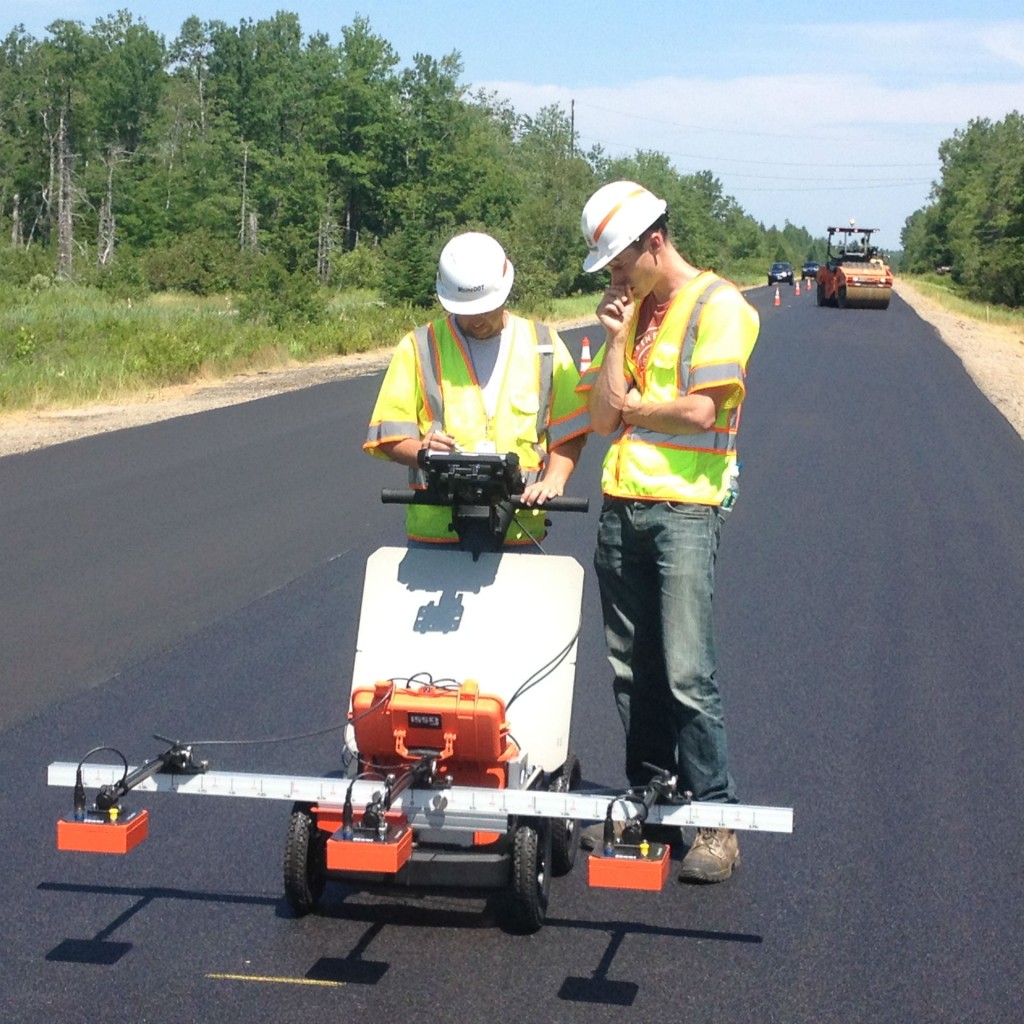
Properly compacted asphalt is a major factor in the lifespan of roads since inadequately compacted asphalt deteriorates at a more rapid rate than properly compacted material.
Construction engineers typically assess asphalt by measuring density variations, which can be used to calculate the air void content. The air void content within asphalt varies based on the amount of compaction during asphalt emplacement and variations in the asphalt mix composition. Asphalt with too many air voids (often considered to be more than 8 percent) deteriorates at a more rapid rate. Too few air voids (less than 3 percent) results from over-compacted asphalt, which is also undesirable. In either case, the asphalt is subject to early failure and the road’s lifetime is less than asphalt that contains the optimal air void content.
Now there is a new radio-wave technology that non-destructively determines asphalt density during application. GSSI’s PaveScan RDM is a non-contact technology that uses a sensor which typically outputs a measurement every half-foot along the lane travelled. A mile’s worth of data includes roughly 10,000 measurements for each sensor used. The new PaveScan system overcomes hardware, data processing and staff expertise hurdles that existed in the past.
GSSI’s three-channel system can be vehicle-mounted, covering both wheel paths and between the wheel paths. One sensor is located in one wheel path, one in the middle and one in the other wheel path – so three measurements are output for each half-foot along the lane travelled. In this way, a mile’s worth of data includes roughly 30,000 measurements – all collected in a mere 20 minutes.
The PaveScan RDM system has a number of benefits.
First, it is a way of ensuring asphalt integrity of newly paved roads. Now, when a contractor lays down a new road, the asphalt void content over the entire area paved is accurately calculated so that both contractors and the owner of the road are satisfied.
Second, the system is easy to use, bringing down the level of expertise needed to a manageable level.
Third, it is a very rapid method, adaptable to being put on a vehicle. The safety benefits of not having someone standing in a lane next to moving traffic are huge.
The PaveScan RDM is an asphalt density assessment tool which provides accurate, real-time measurements to ensure pavement life and quality. It is used for uncovering inconsistencies that occur during the paving process, including poor uniformity and significant variations in density. By avoiding these problems, PaveScan RDM helps avoid such premature failures as road ravelling, cracking and deterioration along joints.
The innovative technology enables users to obtain critical density data for QA/QC of new pavements.



